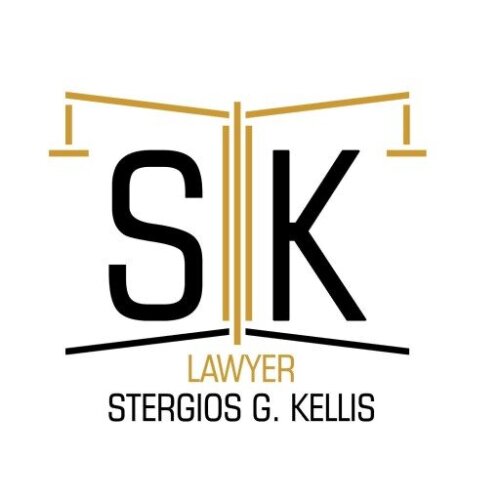Best Restructuring & Insolvency Lawyers in Xanthi
Share your needs with us, get contacted by law firms.
Free. Takes 2 min.
List of the best lawyers in Xanthi, Greece
About Restructuring & Insolvency Law in Xanthi, Greece
Restructuring and insolvency law in Xanthi follows the national legal framework of Greece but is applied locally through the courts and public offices that serve the Xanthi region. These areas of law cover situations where individuals or businesses cannot meet their financial obligations and need either an orderly restructuring to continue operating or a formal insolvency process leading to repayment plans or liquidation. Procedures can include out-of-court negotiations, court-supervised reorganization plans, bankruptcy proceedings, and special frameworks for over-indebted natural persons. Local legal practitioners, courts, creditors and public authorities such as tax and social security bodies are all involved in the process.
Because Xanthi is a regional city, the Court of First Instance in Xanthi and the local public offices are the first points of contact for filings and procedural steps. Local lawyers and advisors with experience in Greek insolvency practice will be familiar with the operational realities of the regional economy, creditor profiles and the handling of enforcement in the area.
Why You May Need a Lawyer
Restructuring and insolvency matters are legally complex and fact-sensitive. You may need a lawyer for many reasons, including if you are facing serious debt, receiving enforcement notices, being threatened with foreclosure, considering a voluntary restructuring, or being a creditor seeking to protect your rights. A lawyer can assess your financial position, advise on options - such as negotiated settlements, composition agreements, or formal insolvency filings - and represent you in court or negotiations.
For business owners in Xanthi, lawyers help prepare and implement reorganization plans, handle creditor meetings, and ensure compliance with obligations toward employees and public authorities. For individuals, lawyers can explain debt relief schemes available, negotiate with creditors, and represent debtors in personal insolvency procedures. Lawyers also protect clients from procedural pitfalls that can lead to loss of rights or unintended acceleration of enforcement actions.
Local Laws Overview
The legal framework in Greece provides several paths for resolving insolvency and over-indebtedness. Broadly, these include out-of-court settlements between debtors and creditors, court-supervised restructuring or reorganization, special regimes for natural persons, and bankruptcy or liquidation. Procedures distinguish between secured and unsecured creditors, prioritize certain claims (for example, employee wages and certain tax and social security claims), and regulate the role of court-appointed administrators or trustees.
Key elements to keep in mind in Xanthi and Greece in general are the following: statutory requirements for filing and notification, creditor voting rules for acceptance of reorganization plans, priority rules for payments in liquidation, and the possibility for interim measures to protect assets during negotiations. Cross-border insolvency issues may be governed by EU rules when creditors or assets are located in other European Union countries, which can affect jurisdiction and recognition of proceedings.
Public creditors such as the tax authority and the social security institution have particular enforcement powers and may be major creditors in many cases. The courts in Xanthi will apply national law and procedural rules, and local registries will record pledges, foreclosures and insolvency-related decisions. Timing, documentation and creditor communication obligations are critical, and the involvement of specialized counsel can materially affect outcomes.
Frequently Asked Questions
What is the difference between restructuring and insolvency?
Restructuring generally refers to negotiated or court-supervised plans that reorganize a debtors obligations so the business or individual can continue operating. Insolvency is a state where liabilities exceed assets or the debtor cannot pay debts as they fall due and can lead to formal insolvency proceedings, including liquidation. Restructuring aims to preserve value and continue operations; insolvency can end in distribution of remaining assets to creditors.
When should I consult a lawyer in Xanthi?
You should consult a lawyer as soon as you face persistent cash-flow problems, receive enforcement notices such as writs of seizure or foreclosure, are unable to meet payroll or tax obligations, or are contacted by creditors demanding payment. Early legal advice helps preserve options and can prevent escalation into costly court proceedings.
Can I negotiate with banks and creditors without going to court?
Yes, many cases are resolved through out-of-court negotiations or formal mediation. Negotiated arrangements can include debt rescheduling, partial write-offs, or temporary payment holidays. However, complex negotiations or the need for a binding solution across multiple creditor classes may require court approval or the use of statutory restructuring mechanisms.
Will I lose my home or business assets in insolvency?
That depends on the insolvency route and the nature of the assets. Secured creditors can enforce security interests against collateral such as real estate. Some restructuring agreements can allow debtors to retain assets by modifying payment terms. Courts also consider family and social circumstances in certain personal insolvency regimes. You should get tailored legal advice to understand risks to specific assets.
How long does a restructuring or bankruptcy process take in Xanthi?
Timeframes vary widely with case complexity, number of creditors, and whether disputes arise. Simple negotiated settlements can take weeks to a few months. Court-supervised reorganizations or bankruptcies often last many months and sometimes years. Local court caseloads and procedural steps affect timing, so a local lawyer can give a more precise estimate for your situation.
What obligations do I have toward employees during restructuring?
Employers must comply with labor laws when restructuring, including rules on notice, severance, and collective consultation where applicable. Employee claims for unpaid wages are often given priority in insolvency distributions. Failure to follow employment law can result in additional liabilities and complicate restructuring efforts.
How are secured and unsecured creditors treated differently?
Secured creditors hold rights over specific collateral and usually have priority to enforce those rights or be paid from the proceeds of the collateral. Unsecured creditors have no collateral and are typically paid only after secured and priority claims are satisfied. Restructuring plans often treat different classes of creditors differently, and court approval may be required for plans that bind dissenting creditors.
Can I be personally liable for business debts?
Personal liability depends on the legal form of the business and any personal guarantees given. Sole traders and partners in certain partnerships are typically personally liable for business debts. For limited liability companies, liability is generally restricted to company assets unless directors have given personal guarantees or engaged in wrongful conduct that attracts personal liability.
What costs should I expect for legal help?
Costs vary by case complexity, lawyer experience and required services. You should expect initial consultation fees and then either hourly billing or a fixed fee for specific services. Courts also charge filing fees and other procedural costs. Ask for a fee estimate and a clear engagement letter so you understand billing arrangements before starting work.
Are there options for personal debt relief in Greece?
Greece has mechanisms to help over-indebted individuals, including debt settlement procedures and personal insolvency regimes designed to provide orderly repayment plans or debt relief in appropriate cases. Eligibility and outcomes depend on income, assets, number and type of creditors, and other circumstances. A local lawyer can assess eligibility and guide you through available procedures.
Additional Resources
When seeking assistance in Xanthi, consider consulting the following local and national resources for information and referrals: the local Court of First Instance in Xanthi for procedural filings; the Xanthi Bar Association for referrals to qualified insolvency lawyers; the Chamber of Xanthi for business advisory services; and public authorities such as the tax authority and social security agency for information about specific public claims. National bodies such as the Ministry of Justice and the Ministry of Finance provide guidance on statutory frameworks. For consumer-oriented advice, local citizens service centers can help with basic administrative procedures. If cross-border issues are present, EU insolvency rules and EU consumer protection resources may be relevant.
Next Steps
1. Take stock of your position - prepare a clear list of debts, creditors, assets, income, contracts and upcoming obligations. Accurate documentation is critical.
2. Schedule an initial consultation with a Xanthi-based lawyer experienced in restructuring and insolvency. Bring financial documents, creditor correspondence and any court or enforcement notices to that meeting.
3. Discuss options - your lawyer will outline potential pathways including negotiation, mediation, pre-insolvency arrangements, or formal filings, and explain likely timelines, costs and risks.
4. Consider interim measures - your lawyer may recommend immediate steps to protect assets or halt enforcement while negotiations proceed.
5. Decide and act - choose the strategy that best balances recovery or relief with cost and time, and instruct your lawyer to implement the plan, whether that means negotiation, filing for restructuring or bankruptcy, or pursuing alternatives.
Throughout the process, maintain open communication with creditors where possible, follow your lawyers recommendations, and keep thorough records of all communications and agreements. Early, local legal advice from Xanthi practitioners often improves outcomes and preserves options you may lose if you delay action.
Lawzana helps you find the best lawyers and law firms in Xanthi through a curated and pre-screened list of qualified legal professionals. Our platform offers rankings and detailed profiles of attorneys and law firms, allowing you to compare based on practice areas, including Restructuring & Insolvency, experience, and client feedback.
Each profile includes a description of the firm's areas of practice, client reviews, team members and partners, year of establishment, spoken languages, office locations, contact information, social media presence, and any published articles or resources. Most firms on our platform speak English and are experienced in both local and international legal matters.
Get a quote from top-rated law firms in Xanthi, Greece — quickly, securely, and without unnecessary hassle.
Disclaimer:
The information provided on this page is for general informational purposes only and does not constitute legal advice. While we strive to ensure the accuracy and relevance of the content, legal information may change over time, and interpretations of the law can vary. You should always consult with a qualified legal professional for advice specific to your situation.
We disclaim all liability for actions taken or not taken based on the content of this page. If you believe any information is incorrect or outdated, please contact us, and we will review and update it where appropriate.










